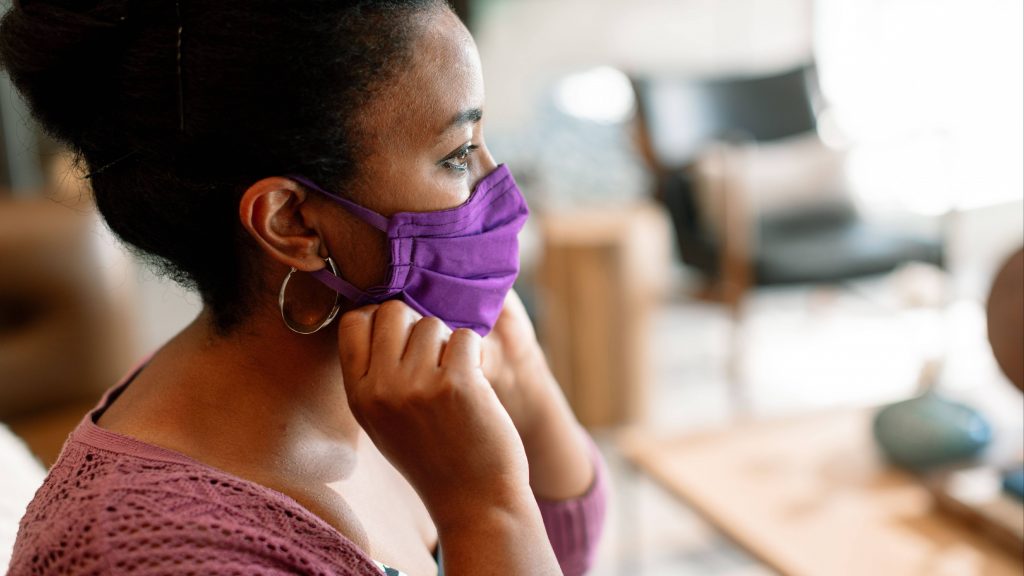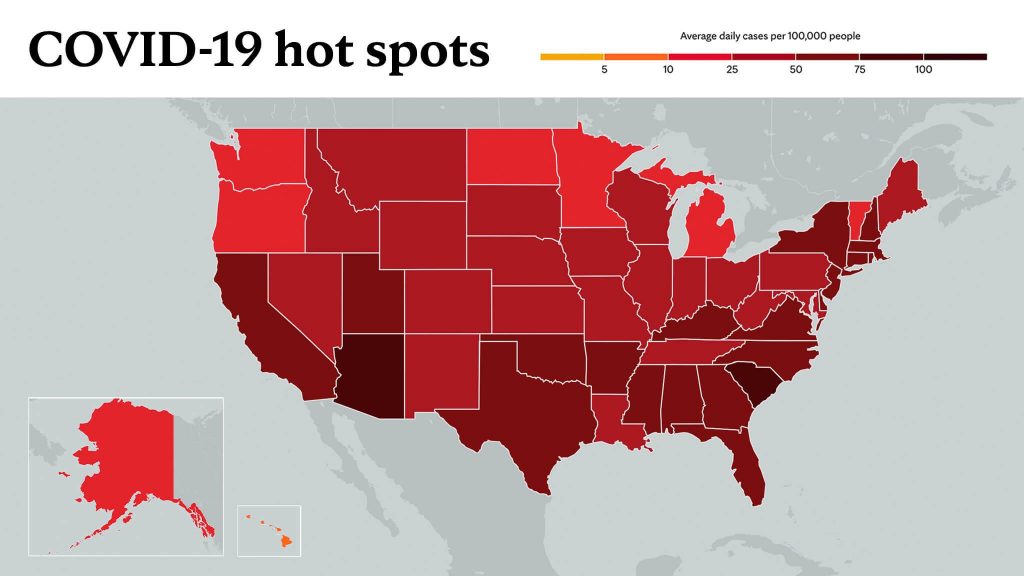
Some people may think that wearing a mask or continuing to practice social distancing aren't necessary steps if they've been infected with COVID-19 or vaccinated for COVID-19. But that's not true, says Dr. Abinash Virk, an infectious diseases expert. Even those who have been vaccinated for COVID-19 still need to wear a mask, practice social distancing and wash their hands frequently.
"Until we have more information about how this vaccine impacts what we call asymptomatic transmission, we still have to wear the mask because, although we may be protected from severe infection, or even getting symptomatic COVID-19 infection, we don't know if people may pick up the virus and transmit it to somebody else."
"These studies — both the Pfizer and the Moderna — were really designed to see if the vaccine can prevent the symptomatic infection," adds Dr. Virk. "They weren't designed to study if we can prevent transmission from one person to the other."
Watch: Dr. Virk discusses the importance of continuing to wear a mask.
Journalists: Broadcast-quality sound bites with Dr. Virk are available in the downloads. Please courtesy, "Abinash Virk, M.D. / Infectious Diseases / Mayo Clinic."
Dr. Gregory Poland, an infectious diseases expert and head of Mayo Clinic's Vaccine Research Group, says this mask question is becoming increasingly common, as more people are vaccinated for COVID-19. He concurs with Dr. Virk, noting there are three good reasons to continue wearing a mask.
"Number one, while the vaccine reduces your risk, it does not eliminate the risk of being exposed to having the disease and asymptomatically transmitting the virus to others."
"Remember that even the best of these vaccines is about 90%-95% effective, meaning, you might still have a 1 in10 or 1 in 20 chance of being exposed and getting the disease. So the mask is protecting you."
The third reason is related to these new mutant variants and other variants still to come. "The vaccine might protect you against death, but maybe your protection against disease ends up being about 50-60%," says Dr. Poland. "If that's true, then we still want to wear masks to prevent disease, and prevent the spread of those variants, which could then mutate further causing even more infections."
Dr. Virk says Mayo Clinic is looking to study the impact of vaccination on asymptomatic carrier state and transmission. "We hope Mayo Clinic staff will participate when the study is announced and hopefully we will have information in the next few months," says Dr. Virk.
Related posts:
- Can I infect someone after I’ve received the COVID-19 vaccine?
- You need the facts about COVID-19 vaccines
- Mayo Clinic answers questions about COVID-19 vaccine
__________________________________________
For the safety of its patients, staff and visitors, Mayo Clinic has strict masking policies in place. Anyone shown without a mask was either recorded prior to COVID-19 or recorded in a nonpatient care area where social distancing and other safety protocols were followed.
Information in this post was accurate at the time of its posting. Due to the fluid nature of the COVID-19 pandemic, scientific understanding, along with guidelines and recommendations, may have changed since the original publication date.
For more information and all your COVID-19 coverage, go to the Mayo Clinic News Network and mayoclinic.org.
Learn more about: tracking COVID-19 and COVID-19 trends








